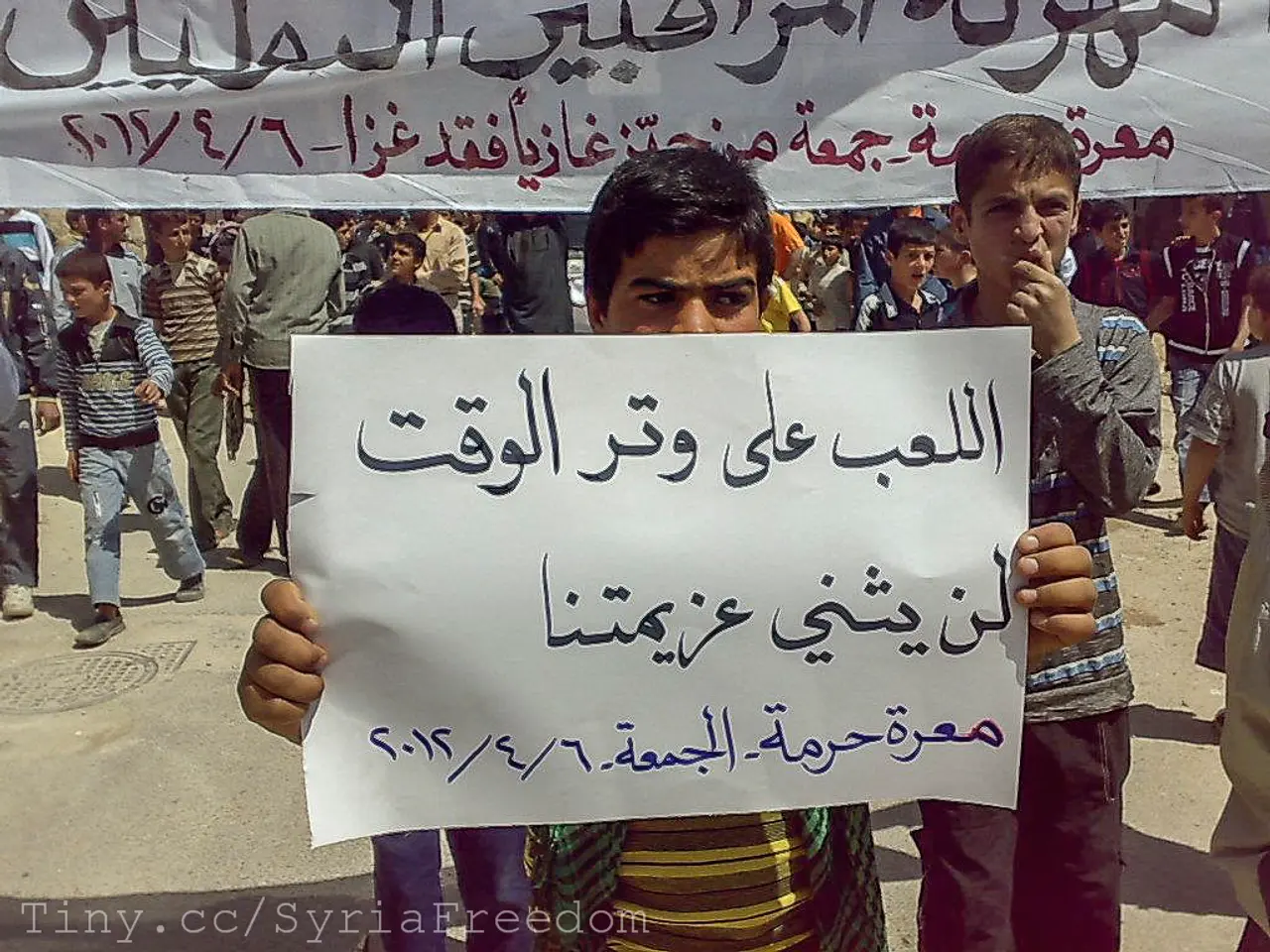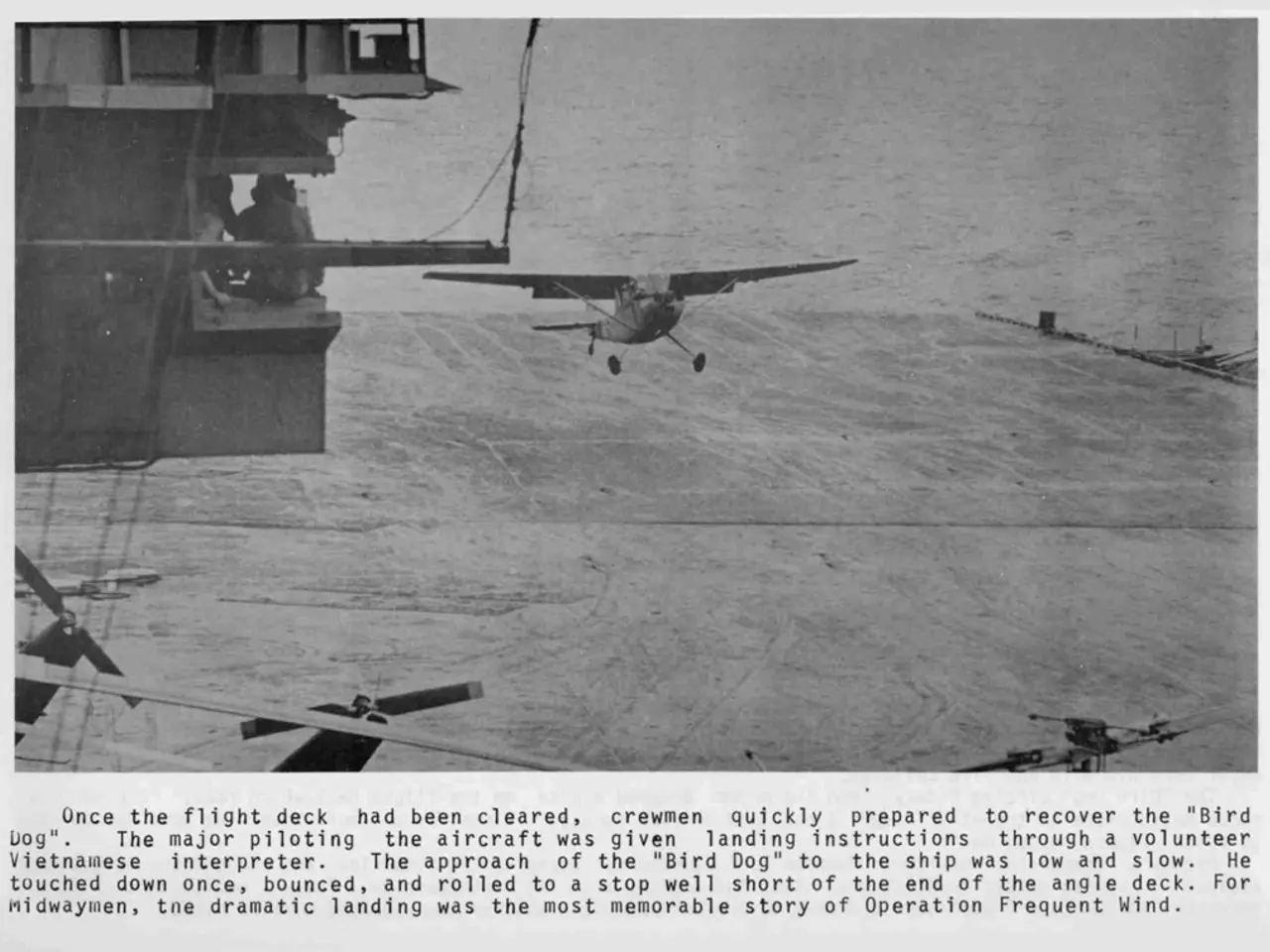Israel faces pressure as Berlin halts specific weapons exports
In a significant move, the German government has announced a temporary suspension of weapons exports that could potentially be used in the Gaza Strip, following Israel's Security Cabinet decision to take control of Gaza City. This decision was made by Chancellor Friedrich Merz as a direct response to Israel's planned escalation of military action in Gaza [1][2][4].
Historically, Germany has been one of Israel’s most steadfast allies and the second largest supplier of arms after the US. However, Merz expressed deep concern about the escalating suffering of Palestinians and questioned the feasibility of an expanded military offensive contributing to Israel's objectives in the conflict [1][3].
Merz reiterated Israel’s right to defend itself and the necessity to disarm Hamas, but emphasized the responsibility Israel now bears to allow humanitarian aid and unrestricted access for UN agencies and NGOs to assist civilians in the Gaza Strip [2]. The halt on arms exports is an attempt by Germany to pressure Israel to modify its military strategy to reduce civilian harm and to promote negotiations towards a ceasefire [2][5].
It is important to note that this policy shift does not imply a departure from Germany’s support for Israel's right to self-defence. Rather, it underscores the German government's concern for the humanitarian situation in Gaza and its desire to see a peaceful resolution to the conflict.
Despite the announcement, the Israeli Security Cabinet has not commented on the potential impact of the German weapons export restriction on its military operations in Gaza. Additionally, it has not announced any changes in its military strategy or a specific timeline for taking control of Gaza City [6][7].
The Israeli government has also not issued any statements about potential diplomatic repercussions of its decision regarding Gaza, nor has it announced any plans to mediate between Israel and Palestinian factions in Gaza. The German government, in turn, has not announced any plans to directly intervene in the situation in Gaza [8].
In conclusion, Germany's increased pressure through suspending weapons exports is a reaction to the Security Cabinet’s decision to intensify military operations in Gaza, aimed at both signaling disapproval of the offensive’s humanitarian impact and urging adherence to humanitarian principles and conflict resolution efforts [1][2][4]. The duration of the temporary restriction on weapons exports has not been specified by Chancellor Friedrich Merz.
- The temporary suspension of weapons exports by Germany, a move prompted by Chancellor Friedrich Merz in response to Israel's planned escalation of military action in Gaza, indicates a policy-and-legislation move within the realm of politics.
- The halt on arms exports, which is an attempt by Germany to pressure Israel to modify its military strategy, is also a part of the general-news narrative surrounding the ongoing conflict in Gaza.






